Two days ago, the author and academic Sadegh Zibakalam announced he had been dismissed from his position at the Faculty of Law and Political Sciences of Tehran University. Since nationwide protests erupted last month, Zibakaram has written many articles criticizing the government and supporting the protesters.
A few months ago, he published his book The Shah Did Not Kill in the United States, as he was refused permission to publish it in Iran. He says that after Iranian President Ebrahim Raisi's government came to power, he was summoned to the Ministry of Intelligence many times and accused of spreading subversion.
But in an interview with IranWire, Zibakalam said: "I still have hope there might be people inside the system who could convince the Supreme Leader and the commanders of the Islamic Revolutionary Guards Corp (IRGC) that they cannot run the country with one-sidedness and stubbornness.”
We talked to him about his expulsion from the university, his summonses the security institutions, and the nationwide protests in Iran.
What is the story of your expulsion from the university? You’ve previously said you were expelled from Azad University and retired from Tehran University.
In 2017, I was a part-time professor at Azad University in the Research Sciences Unit. Dr. Farhad Rahbar, who was the president of Azad University, called me from his office and said that there was a meeting of the board of trustees.
They told me: "Mr. Velayati was very angry with you because apparently you had said that you recognize Israel. Did you say something like that?"
Before I could answer, Dr. Rahbar said, "Now you can fix it and say, for example, that they have distorted your words, or that this was not what you meant, and..."
I told him that they had asked me so many times about this matter that there is no way they would accept that my words had been distorted. He said goodbye and expelled me from Azad University the same day.
At the same time, Tehran University told me I was retired without any explanation. They said that I had turned 70 and my retirement order had been issued.
But since 2018, the Faculty of Law has asked me to teach a course at the insistence of the students. This semester they gave me a class called "Political and Social Developments of the Pahlavi Era." About 40 students had taken this class and the course should have started. But a few days ago Dr. Hamid Ahmadi, the director of the department, sadly informed me that unfortunately, the university had said that I should not teach. I went to Ms. Tavakoli, who oversees education, and she sadly said yes, unfortunately, they had given my class to another teacher.
Does this mean that this issue is related to the recent protests?
Yes. When I think about it, I can only conclude that if they weren’t going to give me a class, the department wouldn’t have considered it at all. The vice-chancellor of education wouldn’t have announced it, and registration would not have taken place. They wouldn’t have gone through all of this. Why was the class canceled right at the point it was ready?
I also went to the security department and asked why they’d decided I couldn't teach. But they didn’t give any explanation, just like all other security decisions. It is not at all clear who made the decision. Where was it made? Why was it made? Did the Ministry of Intelligence, IRGC Intelligence, the university or an agency outside the university make this decision? However, I didn’t get a clear answer.
Have you been summoned by the security agencies during this time?
To tell you the truth, I was summoned to the Ministry of Intelligence three or four times in the months after Mr. Raisi took office. I didn’t publicize this in the media.
They told me that I was subversive. I said: "The subversives also swear at me, and say I am the security valve of the system." They said: "You are a secular subversive. You want to overthrow the Islamic system and replace it with Western secularism. Not publicly, but studies have shown that you want secularism to rule in Iran."
Several times I was in interrogation for long hours and talked to two or three people who were educated people. At first, I didn't take it seriously, but then I realized that there is a serious movement and a part of the security movement thinks I am culturally subversive.
They said I was demonstrating that the Islamic system cannot be a sustainable system and cannot run a state. Part of what they said was true. In other words, in my lectures and works, it is really shown that the religious system cannot be a successful system, and the velayat faqih [rule of the Islamic jurist] system has not been at all successful in the 40 years since it came into power. I told those gentlemen that I would not deny this. But I am not a member of a movement, and I am not spreading secularism in Iran.
Mr. Hossein Dehbashi, who is the director of online history and conducts a series of classes, also invited me for a class this summer. It is interesting that he called and said that I should not participate in these classes either. When I talked about the book The Shah Did Not Kill, they told me not to talk about it or publish it in Iran, because the Islamic Guidance Ministry had not given permission to publish it here.
Dr. Zibakalam, even though you are constantly criticizing the government and are under pressure by the security institutions, you are worried about the collapse of the system. Why?
What I believe is that if this Islamic system collapses, we will not necessarily move forward. I believe that the foundations of democracy in Iran should be established gradually and one step at a time, brick by brick.
Just as the hijab has been slowly loosened, I believe that democracy should be spread step by step in Iran.
I don't think a revolutionary movement like 1957 and what is happening now will necessarily end in a democratic system.
As a professor of political science, what do you think should be done now?
The ball is now in the court of the system. The protests are a game of ping pong. Or as the British say, it is a tango dance: they say you need two to tango.
Part of the democratic changes and transformations that should occur are protests and strikes, marches and people's pressure. Another part is the performance of the system. If the system takes steps towards the realization of democracy, then I believe this will be the most desirable outcome. But if the system wants to supress the people, then the people will turn to violence in the next stage, and this will lead to a chaos that I am very afraid of.
Now, many people who are inside the system have not spoken a word in the last three weeks. You haven't heard a single word from Ali Larijani, Ahmad Tavakoli, Bahoner, Hassan Rouhani, and Nategh Noori. I believe the reason that we haven’t heard anything from these people is that they do not accept the government's approach and the policies of the Supreme Leader. They believe that there should be changes. The political space should be opened, the rule of law should be established, mandatory hijab and morality police should be removed. I mean there are many people who do not agree with the policies of the leader, but what can they say?
But protesters say it is too late for all so-called reforms.
You know why it's late; because for 43 years the system has shown that whatever it says should be done. Whether it be Ayatollah Khomeini or the 30 years that we’ve had the Supreme Leader [Khamenei]; they’ve never been willing to show any flexibility and take a step towards democracy. If the system does not undergo any change, it will lead to violence. I am worried about this violence, not because of the future of Iran, because of the future of the system.
I hope that the system will show some rationality, realism, and not feel that it is backing down. Because, unfortunately, one of the things that is in the mind of the system, including in the mind of the Supreme Leader, is that the Shah made a mistake by retreating and that they should not retreat one inch. What a great mistake. Well, if we don't back down and want to stand firmly against the people, there is no other way but killing.
In 2009, the people had nothing to do with the police force, they did not shout slogans of "subversion" and slogans meaning that "It is the end of it." In 2019, when they saw the police force, they tried to run away, but now when the girls see the police force, they don't run away. They face each other. The next step is that they go and attack. These are, in my opinion, things that are inevitable if minimal changes are not made. I still hope that there would be people in the system who will convince the Supreme Leader and the commanders of the IRGC that they cannot run the country with one-sidedness and stubbornness.
In various protests, you raised the two issues of "Syrianization" and "separatists" in Iran – two themes that government supporters use to silence the protesters.
The issue of becoming another Syria means that some people in the system will not support reforms or show flexibility under any circumstances. Well, if they don't do this, what will these young people and the younger ones born in 2000s, do? Will they not resort to violence?
Becoming Syrian means that one armed group faces another armed group. I don't think that people will come to the street forever and be hit by batons, tear gas, bullets, etc, and tolerate it. I fear the day when some people on the other side would respond with bullets and tear gas. I am addressing the government. Because people don't want Iran to become Syria. But when the government doesn't back down and doesn't show flexibility, when it doesn't do anything but supress and shoot, it's the government that turns Iran into Syria, not the opposition or the ones born in the 2000s.
The same applies to separatists, that is, the outcome is in the hands of the government. Just look at the way and method used by the government in Kurdistan and Zahedan. It is the government that is leading Iran to disintegration with the action it took in Zahedan, Mahabad, Sanandaj and the bombing of the Kurdistan region.
My words in these two cases were exploited by the government, the monarchists and the subversives, but my point is that if we do not see flexibility from the government, if the system does not show a reasonable approach, if it says that it shall always have the last word, the country will turn into Syria and disintegration.
visit the accountability section
In this section of Iran Wire, you can contact the officials and launch your campaign for various problems




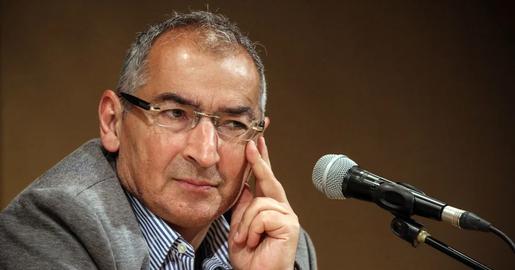

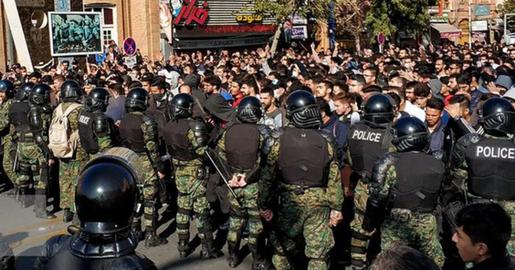





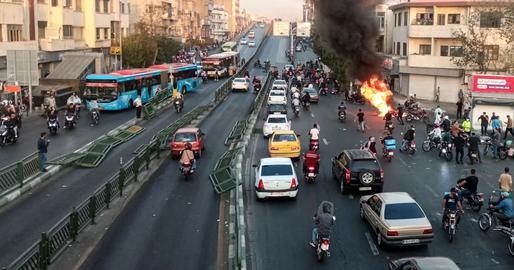
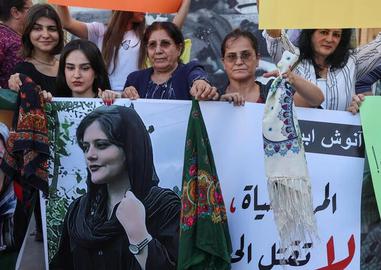
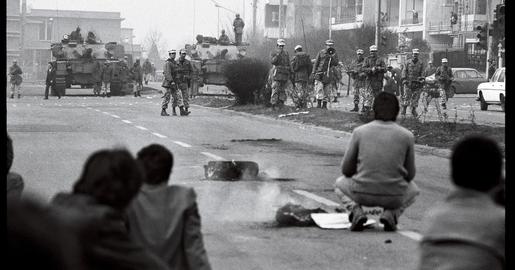
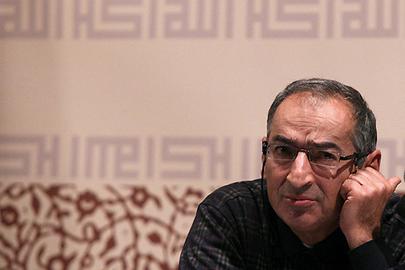










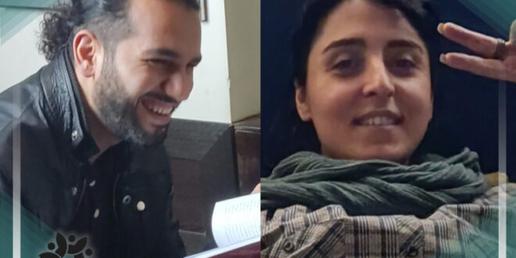
comments